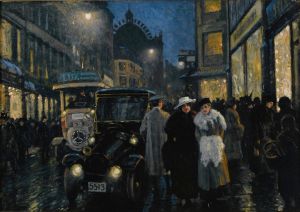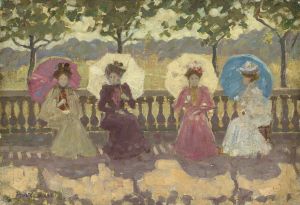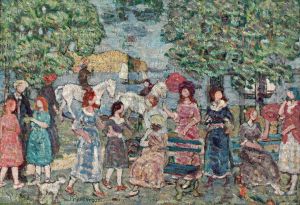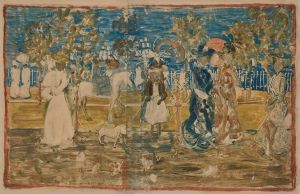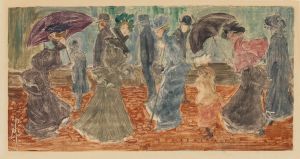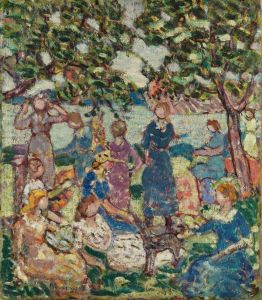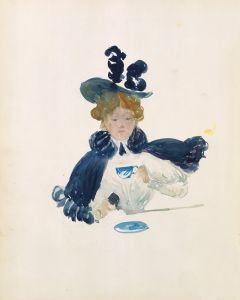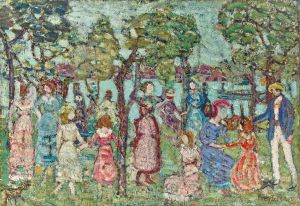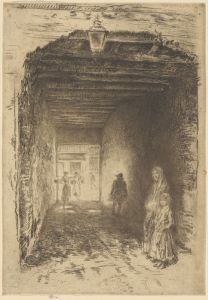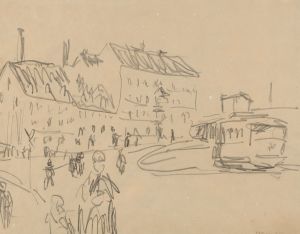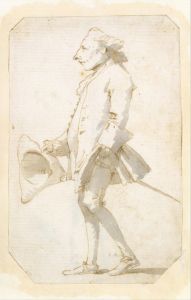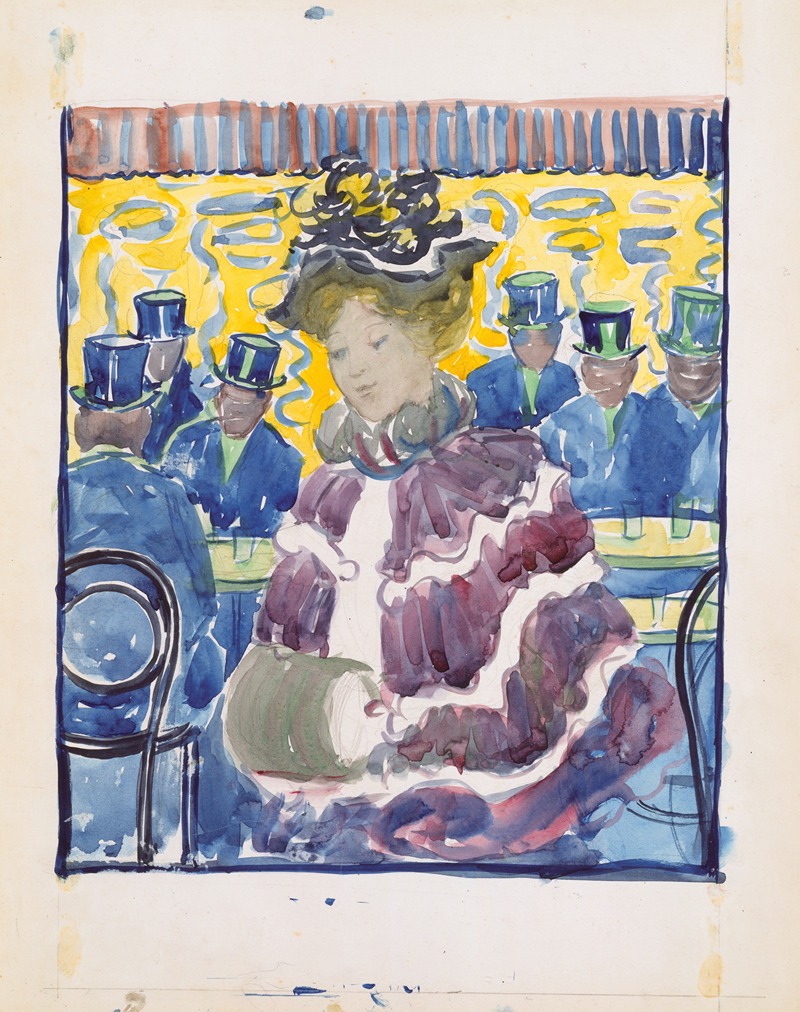
A woman passing a café
A hand-painted replica of Maurice Prendergast’s masterpiece A woman passing a café, meticulously crafted by professional artists to capture the true essence of the original. Each piece is created with museum-quality canvas and rare mineral pigments, carefully painted by experienced artists with delicate brushstrokes and rich, layered colors to perfectly recreate the texture of the original artwork. Unlike machine-printed reproductions, this hand-painted version brings the painting to life, infused with the artist’s emotions and skill in every stroke. Whether for personal collection or home decoration, it instantly elevates the artistic atmosphere of any space.
Maurice Prendergast's painting A Woman Passing a Café is a work by the American Post-Impressionist artist, known for his vibrant use of color and decorative style. Prendergast, who was born in St. John's, Newfoundland, in 1858 and later moved to Boston, Massachusetts, was a member of "The Eight," a group of artists who sought to break away from academic traditions in American art. His works are characterized by their lively, mosaic-like compositions and a focus on leisure scenes, often depicting urban parks, beaches, and other public spaces.
A Woman Passing a Café exemplifies Prendergast's interest in capturing modern life and the social interactions of his time. The painting portrays a woman walking past a café, a scene that reflects the growing prominence of urban culture and public spaces in the late 19th and early 20th centuries. Prendergast's style in this work demonstrates his affinity for the Post-Impressionist techniques of artists like Paul Cézanne and Pierre Bonnard, whom he studied during his time in Paris in the 1890s. His use of bold, flat areas of color and rhythmic patterns creates a sense of movement and energy, while also emphasizing the decorative qualities of the composition.
The exact date of A Woman Passing a Café is not definitively documented, but it is consistent with Prendergast's mature period, during which he developed his signature style. The painting is executed in watercolor, a medium Prendergast frequently used, as it allowed him to achieve the luminous, jewel-like quality that characterizes much of his work. His choice of subject matter—a solitary figure in an urban setting—reflects his interest in the changing dynamics of modern life, particularly the role of women in public spaces.
Prendergast's works, including A Woman Passing a Café, are celebrated for their innovative approach to composition and color, which set him apart from many of his contemporaries. Today, his paintings are held in major collections, including the Metropolitan Museum of Art in New York and the Museum of Fine Arts in Boston. However, specific details about the current location or provenance of A Woman Passing a Café are not widely documented.
Maurice Prendergast passed away in 1924, leaving behind a legacy as one of America's most distinctive modern painters. His works continue to be studied and appreciated for their unique blend of Post-Impressionist influences and a distinctly American perspective on modernity.







